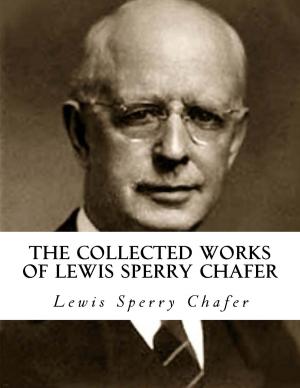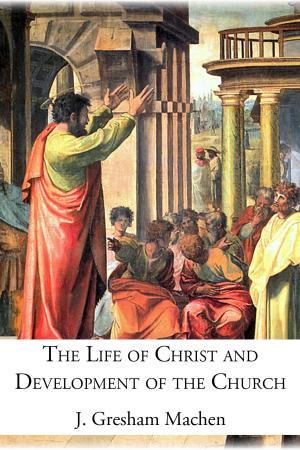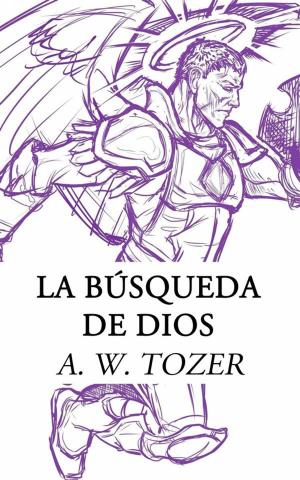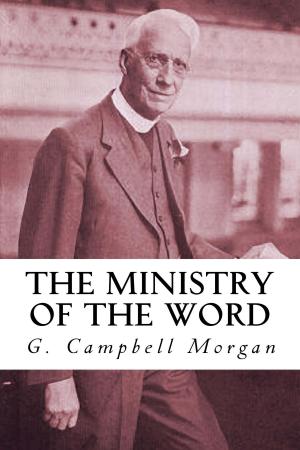Expository Notes on the Epistle of James
Nonfiction, Religion & Spirituality, Christianity, Christian Literature, Bible & Bible Studies, New Testament, Commentaries| Author: | H. A. Ironside | ISBN: | 1230001945669 |
| Publisher: | CrossReach Publications | Publication: | October 1, 2017 |
| Imprint: | Language: | English |
| Author: | H. A. Ironside |
| ISBN: | 1230001945669 |
| Publisher: | CrossReach Publications |
| Publication: | October 1, 2017 |
| Imprint: | |
| Language: | English |
"It is a grave mistake to infer, as some have done, that this Epistle emphasizes works rather than faith. It stresses the importance of faith throughout, but shows that real faith is never separated from a life of piety."
"Many, besides Martin Luther, have thought they detected contradictory teaching in the letter of James, to that of Paul as set forth in Romans and Galatians; but a careful examination of these letters will show that they were treating of altogether different subjects. Paul was dwelling on justification before God; James on justification before men. Had Luther seen this in his early days and put more stress upon it, he might have saved many of his followers from resting on mere credulity instead of knowing the reality of saving faith."
"in Chapter 3 would be designed to correct a misunderstanding bordering on antinomianism on the part of some, who were pushing Paul’s teaching to an extreme which he never intended."
"It seems to be a tendency inherent in most of us to go to extremes in matters of doctrine. This is true in regard to the question of our salvation as well as in other things. Some insist that we are saved by character; that only as we do good works and consistently obey the law of God can we be justified. At the other extreme are those who rest solely upon an historical faith for their acceptance with the Lord, ignoring the need of that inner change which the Saviour described as a new birth, and which is evidenced by a life of practical righteousness.
The Holy Spirit used the Apostle Paul in a special way to show the fallacy of the first of these views. He insists that justification before God is never by the deeds of the law but by faith in Christ. James deals with the second error, and makes it plain that the faith that saves is a faith that works, and that no one is justified before God who is not justified practically before men."
"It is a grave mistake to infer, as some have done, that this Epistle emphasizes works rather than faith. It stresses the importance of faith throughout, but shows that real faith is never separated from a life of piety."
"Many, besides Martin Luther, have thought they detected contradictory teaching in the letter of James, to that of Paul as set forth in Romans and Galatians; but a careful examination of these letters will show that they were treating of altogether different subjects. Paul was dwelling on justification before God; James on justification before men. Had Luther seen this in his early days and put more stress upon it, he might have saved many of his followers from resting on mere credulity instead of knowing the reality of saving faith."
"in Chapter 3 would be designed to correct a misunderstanding bordering on antinomianism on the part of some, who were pushing Paul’s teaching to an extreme which he never intended."
"It seems to be a tendency inherent in most of us to go to extremes in matters of doctrine. This is true in regard to the question of our salvation as well as in other things. Some insist that we are saved by character; that only as we do good works and consistently obey the law of God can we be justified. At the other extreme are those who rest solely upon an historical faith for their acceptance with the Lord, ignoring the need of that inner change which the Saviour described as a new birth, and which is evidenced by a life of practical righteousness.
The Holy Spirit used the Apostle Paul in a special way to show the fallacy of the first of these views. He insists that justification before God is never by the deeds of the law but by faith in Christ. James deals with the second error, and makes it plain that the faith that saves is a faith that works, and that no one is justified before God who is not justified practically before men."















